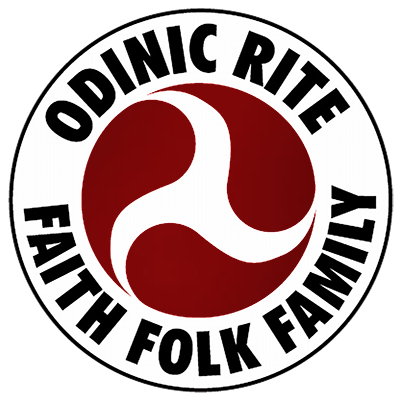By Michael Boyd AOR
I have often been accused of being ‘extreme’ on certain issues concerning ethics and morality, yet I can only smile and say, “true”. An elderly friend of mine named Gordon Clark, long since deceased, used to say when accused of ‘extremism’, “Extreme? You’re damn right I am extreme; I love my folk and friends as much as I hate my enemies”. His point, despite the tone, was that at times extremism is needed and often just means ‘true’.
To the mainstream egalitarian mentality, extremism implies overkill, overdoing it, injustice etc. For me, it is just truth, faith/fidelity and honesty. I believe the heathen concept of moderation in modern times is actually a borrowing from egalitarian society, be it Atheist or Christian. This misconceived notion of moderation is I believe based on a slight mathematical misunderstanding. When most think of moderation, what is used is actually the median or ‘middle-value’ in a set, whereas true moderation is the concept of mode, the most frequently occurring value in the set of values, and might I add so as to be conducive to human nature, the most frequently occurring value relative for sufficient needs.
This means that if sufficient needs demand passive action on a frequent basis, then passivity is needed, or if a particular active action is needed on a frequent basis for sufficiency, then that is of value or virtue. The key word in median is just ‘middle’; ‘middle’ implies a false sense of balance, of 50/50, of ‘this vs. that’ dualism. Consider the natural law that we call ‘The Path of Least Resistance’ – no ‘middle’ action there.
Aristotle makes this error in Section Six, of Book Two in Nicomachean Ethics:
“Virtue is concerned with emotions and actions; and in emotions and actions excess and deficiency miss the mark, whereas the median is praised and constitutes success…Consequently, virtue is a mean in the sense that it aims at the median. This is corroborated by the fact that there are many ways of going wrong, but only one way which is right.”
I agree, however, with his conclusion that there is only one way which is right, except with the few exceptions where there are several ways; I prefer to say there that are only so many ways in which to do something right. Simply put, I argue for the mode-ration instead of media-tion which many mistake for moderation.
Moving outside of the physical realm and into the metaphysical, the mode definition of moderation becomes more realistic. It is popular in Odinist publications to base our faith exclusively on Natural Law, and depict our myths and symbols in the second or third dimensions; yet this is a mistake, due to mankind being not completely bound to physics and Natural Law. If humans were completely bound by Nature’s Laws then we would not need religion, and instead rely strictly on instinct, as animals mostly do. We are not completely bound by instinct (determined by Nature) due to our psycho-spiritual elements of free will and consciousness; in philosophy, this argument is known as ‘determinism vs. free will’. I argue for both, in a concept known as ‘compatiblism’ and our Odinic concept of Orlog (a subject for another article). We do not use a middle-road (i.e. mediation) for Natural Law determinism and free will, but whichever is fitting for the ends we seek. Therefore, the fallacious and egalitarian definition of moderation is bound by the static, mechanical, scientific theory of polarity and the monotheistic doctrine of dualism (Man vs. Nature) which cannot apply to Odinic polytheism and the spirit-world throughout Yggdrasil. The mode concept of moderation however, allows the flexibility and sufficiency that is more consistent with spirit-mind flexibility.
While this may seem abstract, the mode concept realistically reflects true moderation, and a healthy heathen dualism (Man with Nature, Nature with the Supernatural) that includes a suitable monism.
When one Odinist accuses another of extremism, he is treating a fellow Odinist as the Christian would treat him, because for the Christian, all heathens would be seen as extremists. Such hypocrisy must be acknowledged if our Faith is further to grow, evolve, develop and persevere in a spirit of solidarity, unity and folk-community. We cannot let egalitarians and universalists of any stripe use the concepts of balance, equilibrium and moderation for their own anti-race, anti-folk, anti-faith agendas.
53.
A little lake hath but little sand,
But small the mind of man.
Not all men are equally wise,
Each wight wanteth somewhat.
54.
Middlingwise every man should be:
Beware of being too wise;
Happiest in life most likely is he
Who knows not more than is needful.
Sources
1. Beginning Philosophy – Double, Richard, Oxford Pub. New York 1999.
2. Poetic Edda – translation by Lee M. Hollander. Univ. of Texas, Austin 1996.


